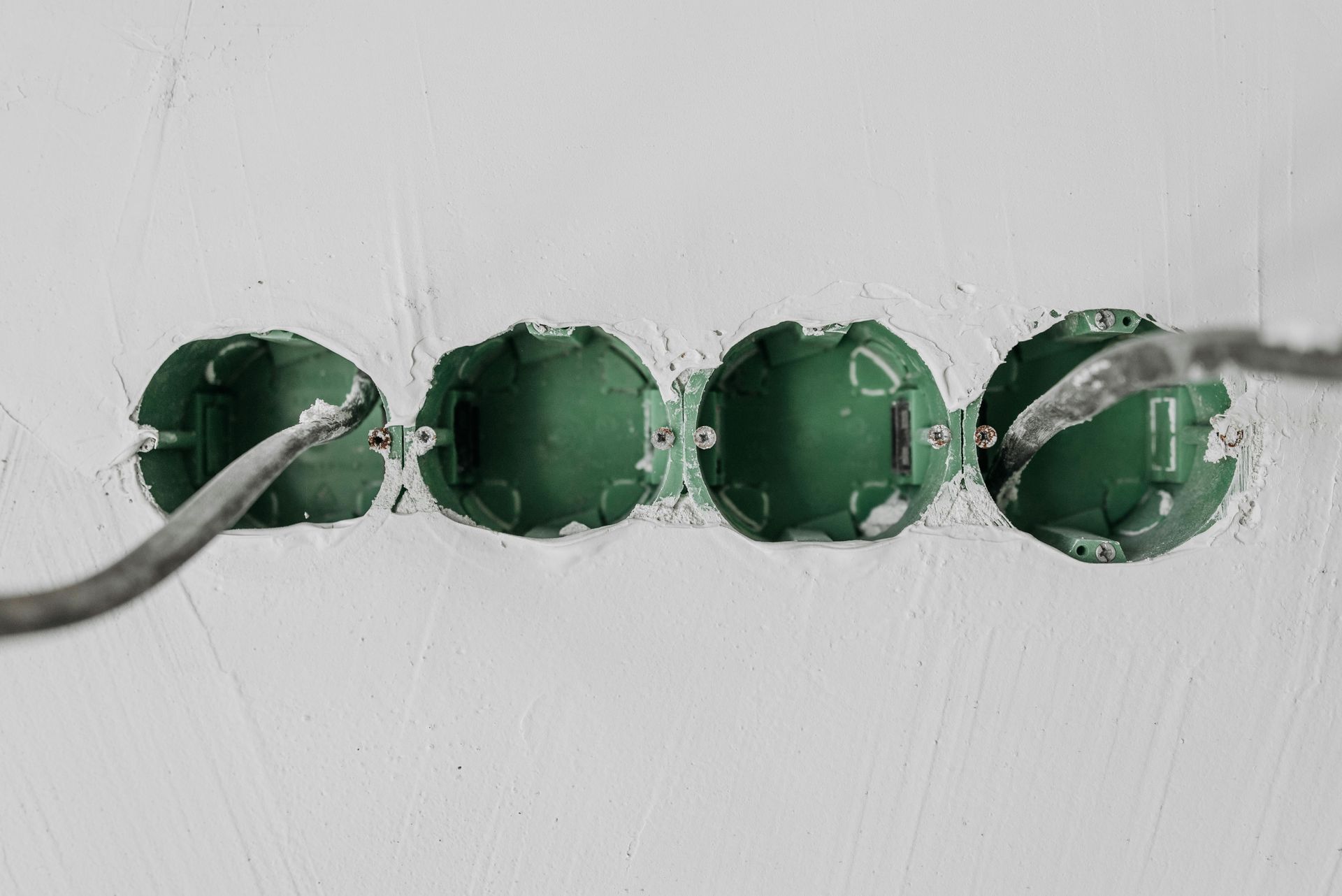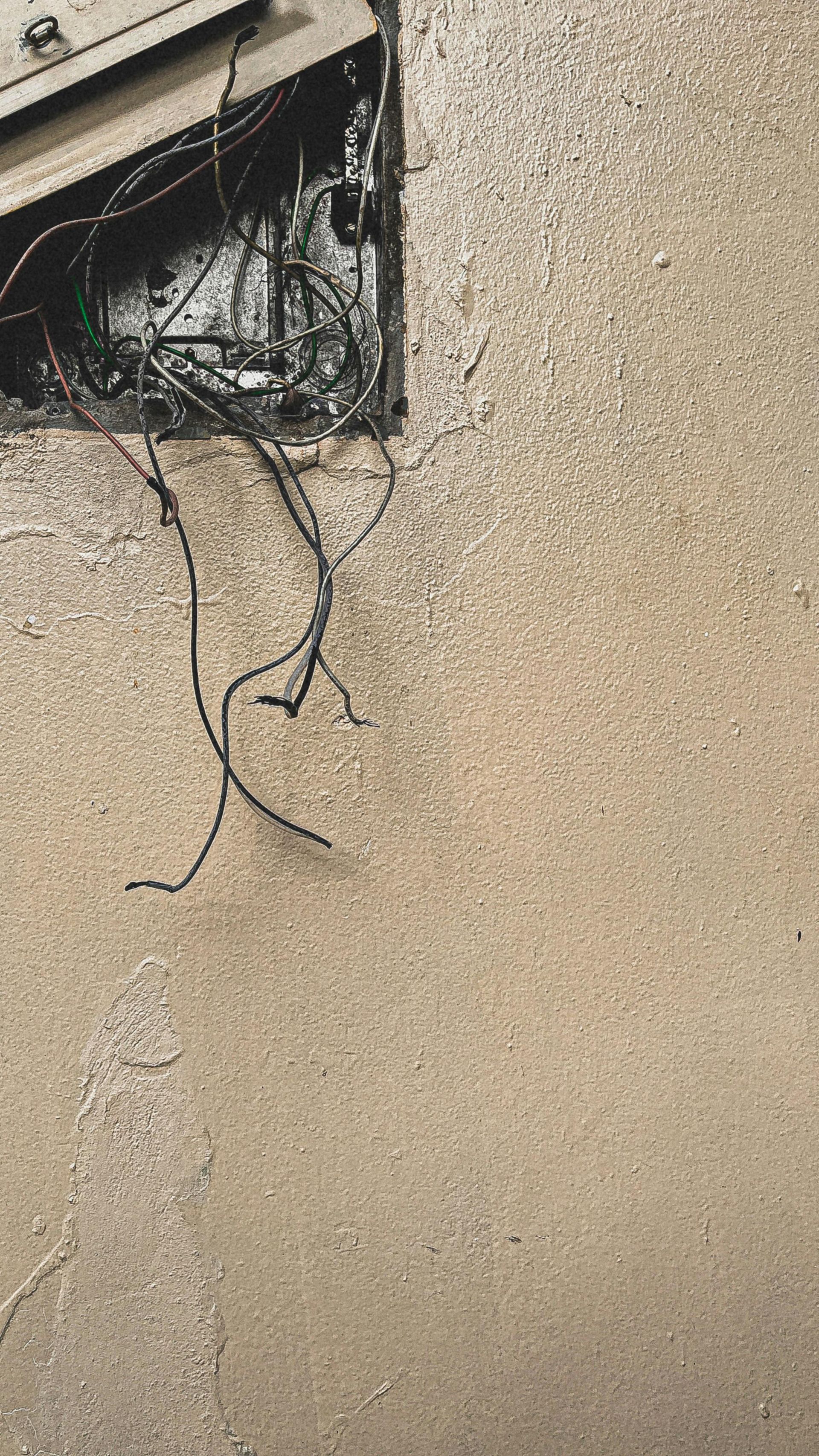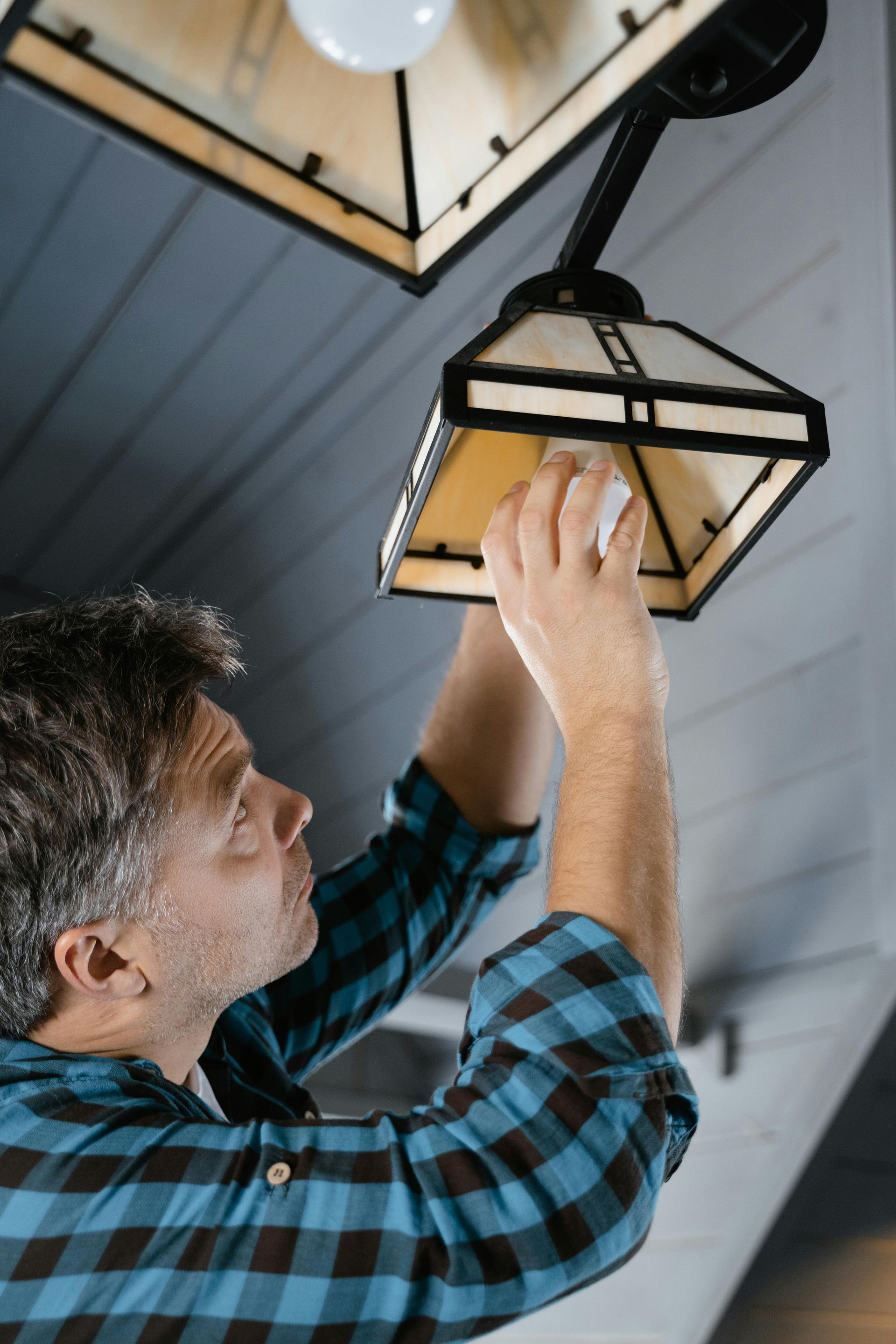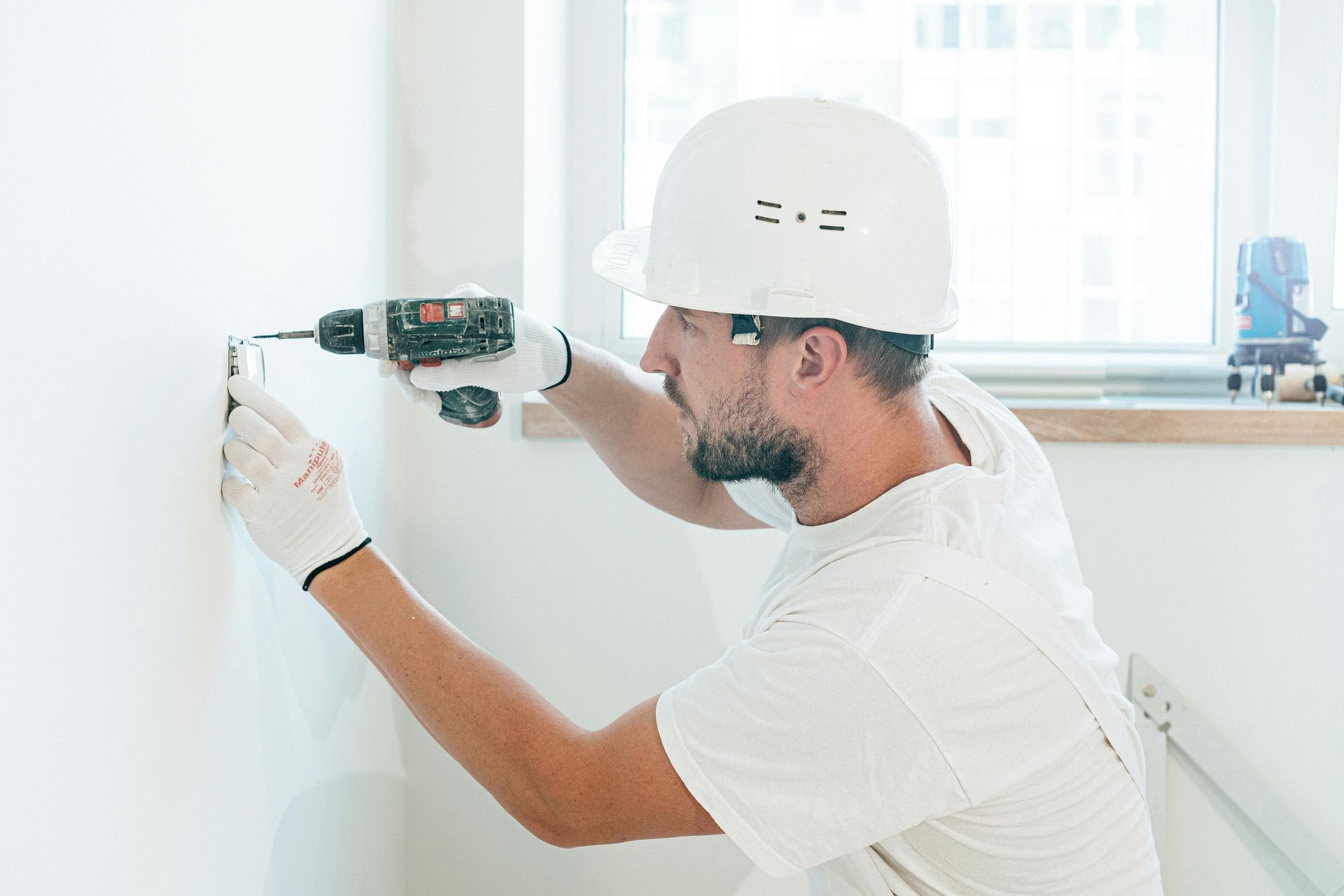Common Signs You Need Electrical Repair in Your Home
Your home's electrical system works quietly behind the walls, powering everything from your morning coffee maker to your evening entertainment. Most homeowners rarely think about their wiring until something goes wrong. However, electrical problems rarely appear without warning. Understanding the signs that indicate you need electrical repair can help you address issues before they become serious safety hazards.
Electrical systems deteriorate over time, and older homes may struggle to meet modern power demands. Whether you're dealing with outdated wiring or recent damage, recognizing the symptoms of electrical trouble is the first step toward maintaining a safe living environment. This guide will help you identify when it's time to search for "electrical repair near me" and bring in a qualified professional.
Key Takeaways
- Flickering lights and frequent bulb burnouts often indicate underlying wiring problems that require professional attention.
- Circuit breakers that trip repeatedly are warning you about overloaded circuits or potential electrical faults.
- Burning smells, discolored outlets, or warm switch plates signal dangerous conditions that need immediate repair.
- Buzzing sounds from outlets, switches, or your electrical panel point to loose connections or failing components.
- Homes built before 1980 may have outdated wiring systems that cannot safely handle today's electrical demands.
- Regular electrical troubleshooting and maintenance can prevent small issues from becoming expensive emergencies.
Flickering or Dimming Lights Throughout Your Home
One of the most common signs of home electrical issues involves your lighting. If you notice lights flickering when you turn on major appliances like your air conditioner or washing machine, this suggests your electrical system is struggling to distribute power properly. While a single flickering bulb might just need replacement, widespread dimming across multiple rooms indicates a more serious problem.
Loose connections in your electrical panel, outdated wiring, or an overloaded circuit can all cause lights to dim or flicker. In older homes, the wiring may not be adequate for modern electrical loads. This becomes particularly noticeable when multiple devices draw power simultaneously. The dimming you see represents a voltage drop that occurs when your system cannot supply enough electricity to meet demand.
Some homeowners mistake these symptoms for normal behavior, especially if they've occurred gradually over time. However, persistent flickering should never be ignored. It indicates that your electrical system is under stress, and continuing to operate this way can lead to overheating, damaged appliances, or even fire hazards. If you experience frequent light flickering, especially in multiple areas of your home, professional electrical repair should be your next step.
Circuit Breakers That Trip Frequently
Circuit breakers are designed to protect your home by shutting off power when a circuit becomes overloaded or experiences a fault. An occasional trip might happen when you plug in too many devices at once, but frequent tripping indicates a problem that needs attention. Your breaker panel acts as the control center for your home's electricity, and when breakers trip repeatedly, they're telling you something is wrong.
Several issues can cause frequent breaker trips. Overloaded circuits occur when you draw more power than a circuit can safely handle. Short circuits happen when hot wires touch neutral wires, creating a surge of current. Ground faults occur when electricity takes an unintended path to the ground. Each of these situations represents a potential safety hazard that requires electrical troubleshooting to identify and resolve.
Many homeowners try to solve this problem by resetting the breaker repeatedly or even replacing it with a higher-amperage breaker. Both approaches are dangerous. Constantly resetting a tripping breaker means you're forcing a stressed system to continue operating under unsafe conditions. Installing a larger breaker removes the safety mechanism without addressing the underlying problem. The correct solution involves having a professional assess your electrical system, identify the cause of the trips, and make appropriate repairs or upgrades.
Burning Smells or Discolored Outlets and Switches
A burning smell near outlets, switches, or your breaker panel is one of the most urgent warning signs of electrical problems. This odor often resembles burning plastic or wood and indicates that wires or components are overheating. If you notice this smell, you should shut off power to the affected area immediately and contact a professional for electrical repair.
Visual signs are equally concerning. Discoloration around outlets or switches, particularly brown or black marks, shows that arcing or overheating has occurred. The plastic covering may appear melted or warped. Outlets that feel warm or hot to the touch, even when nothing is plugged in, indicate dangerous heat buildup within the electrical box. These conditions result from loose connections, damaged wiring, or outlets that can no longer safely handle electrical current.
Ignoring these signs puts your home at serious risk. Overheating electrical components are a leading cause of house fires. The damage you can see on the surface often represents more extensive problems hidden within your walls. Even if the burning smell disappears or seems intermittent, the underlying issue remains. Professional inspection can reveal the extent of the damage and ensure all affected components are properly repaired or replaced.
Buzzing or Humming Sounds from Electrical Components
Electricity should flow silently through your home's wiring. When you hear buzzing, humming, or crackling sounds from outlets, switches, or your electrical panel, these noises indicate loose connections or failing components. The sound represents electricity arcing across small gaps, creating heat and potentially starting fires.
Different sounds can point to different problems. A low humming from your breaker panel might indicate a loose connection or a breaker that's beginning to fail. Crackling or sizzling sounds often mean electricity is jumping across damaged wires or corroded connections. Buzzing from a light switch suggests the switch itself is wearing out and needs replacement. Any of these sounds warrants immediate attention from a qualified electrician.
Some homeowners live with these sounds for months or even years, assuming they're normal. However, electrical components should operate without producing audible noise. The longer these problems persist, the more damage occurs to your electrical system. Arcing connections generate heat that can melt wire insulation, damage outlets, and create fire hazards. Addressing buzzing or humming sounds promptly prevents minor issues from becoming major repairs.
Signs Your Home Needs an Electrical System Upgrade
Many electrical problems stem from systems that are simply outdated. Homes built several decades ago were designed for far fewer electrical devices than we use today. If your home shows multiple signs of electrical stress, a comprehensive system upgrade may be more cost-effective than repeated repairs.
| Warning Sign | What It Indicates | Action Needed |
|---|---|---|
| Two-prong outlets throughout home | Lack of proper grounding | Outlet and possibly wiring upgrade |
| Frequent use of extension cords | Insufficient outlet availability | Additional circuits and outlets |
| Aluminum wiring | Outdated, potentially hazardous material | Complete rewiring may be necessary |
| 60-amp or 100-amp service | Inadequate power for modern needs | Service panel upgrade to 200-amp |
| Lack of GFCI outlets in wet areas | Missing required safety features | GFCI installation in kitchen, bathrooms |
Recognizing Outdated Wiring Systems
Homes built before 1970 may have knob-and-tube wiring or aluminum wiring, both of which present safety concerns. Knob-and-tube wiring lacks grounding and cannot support modern electrical loads. Aluminum wiring, common in homes built during the 1960s and 1970s, can develop loose connections over time due to the metal's expansion and contraction properties. These older systems may not meet current electrical codes and could affect your home's insurability.
Even copper wiring degrades with age. Insulation becomes brittle and can crack or flake away, exposing bare wire. Connections loosen as components age, creating resistance that generates heat. If your home is more than 40 years old and has never had electrical updates, having a professional inspection can reveal whether your system needs modernization.
Understanding Your Home's Power Capacity
Modern households in the United States require significantly more power than homes from previous decades. Central air conditioning, multiple computers, large-screen televisions, and kitchen appliances all demand substantial electricity. If your electrical panel still provides 60-amp or 100-amp service, it likely cannot meet these demands safely. Most contemporary homes require at least 200-amp service to operate comfortably without overloading circuits.
Signs that your service capacity is inadequate include needing to choose which appliances to run to avoid tripping breakers, lights dimming when major appliances start, and a general inability to power your household comfortably. Upgrading your electrical service involves replacing your main panel and may require new wiring in parts of your home, but it provides the foundation for safe, reliable electrical performance.
Frequently Asked Questions
How often should I have my home's electrical system inspected?
Most experts recommend having a professional electrical inspection every 3 to 5 years for homes over 25 years old, or every 10 years for newer homes. You should also schedule an inspection when buying a home, after any major electrical work, or if you notice any warning signs of electrical problems.
Can I reset a circuit breaker myself, or do I need an electrician?
You can safely reset a circuit breaker yourself by turning it fully off and then back on. However, if the same breaker trips repeatedly, this indicates an underlying problem that requires professional electrical repair rather than continued resetting.
What should I do if I smell burning near an outlet?
Immediately unplug any devices from the outlet and turn off the circuit breaker controlling that outlet if you can safely reach your electrical panel. Do not use the outlet again until a qualified electrician has inspected and repaired it, as burning smells indicate serious overheating that could start a fire.
How much does typical electrical repair cost?
Electrical repair costs vary widely depending on the problem's nature and complexity, ranging from simple outlet replacements to extensive rewiring projects. Getting multiple quotes from licensed electricians in your area will provide the most accurate pricing for your specific situation.
Are some electrical problems safe to ignore temporarily?
No electrical problem should be considered safe to ignore, as even minor issues can escalate into serious hazards. While some problems may seem less urgent than others, all electrical issues require professional evaluation and repair to ensure your home's safety.
Final Thoughts
Your home's electrical system is too important to neglect. The warning signs discussed in this article indicate problems that won't resolve themselves and can escalate into dangerous situations. Whether you're experiencing flickering lights, tripping breakers, unusual sounds, or burning smells, prompt action prevents minor issues from becoming serious emergencies.
Electrical work requires specialized knowledge and should never be attempted as a DIY project. When searching for "electrical repair near me," choose licensed, insured professionals with solid reviews and relevant experience. A qualified electrician will diagnose problems safely, explain their findings clearly, and ensure all repairs meet current codes and standards.
Don't wait for an emergency to address electrical problems. Contact a licensed electrician today to schedule a safety inspection and protect your home from electrical hazards.
Reference:
https://esdsales.com/what-is-the-standard-electrical-service-for-residential/





